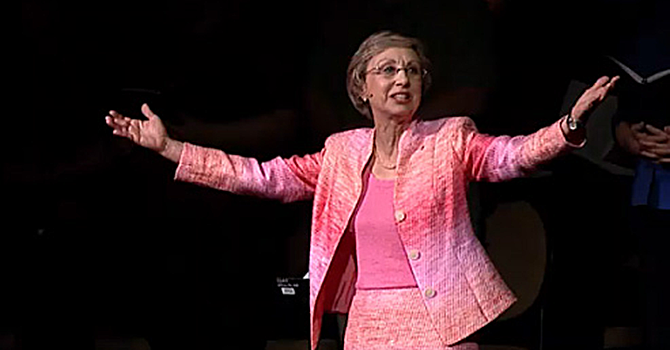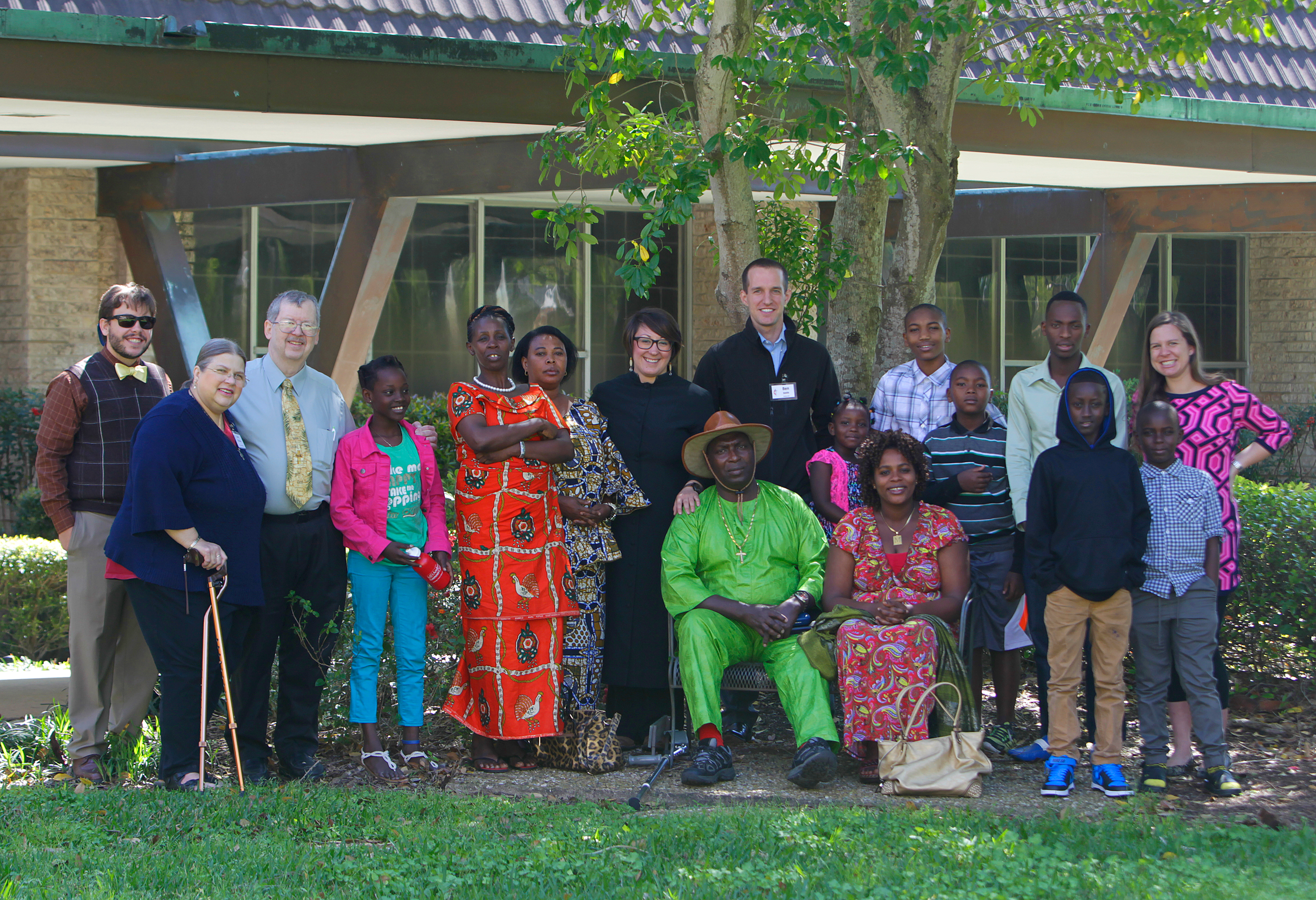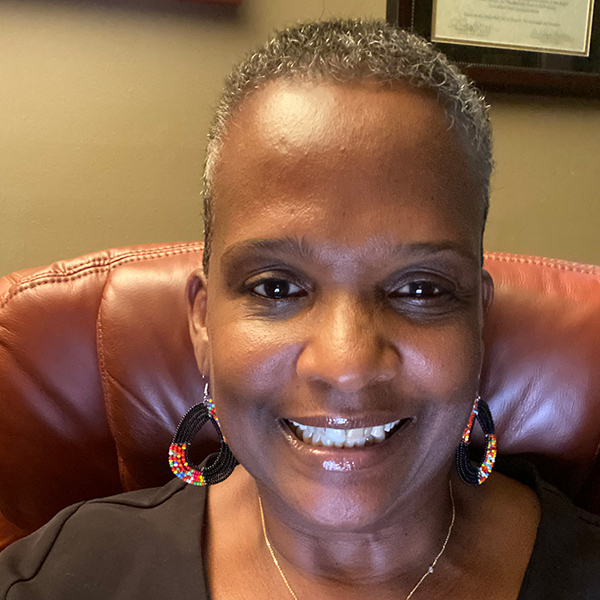Editor's note: The Rev. Janice Riggle Huie retired as bishop and now serves at the Texas Methodist Foundation.
The Rev. Janice Riggle Huie, the bishop of the UMC Texas Annual Conference, was an ardent supporter of the apartment ministry of Houston’s Westbury United Methodist Church from the first time she heard about it.
For years, watching Houston’s changing demographics, she had felt frustrated. She and the city’s many United Methodist congregations had been at a loss for ways to connect with the city’s new residents.
So when the Rev. Tommy Williams and Westbury proposed creating an apartment ministry to reach out to the city’s burgeoning refugee population, Huie was on board, lending financial and other support.
Tips to support the innovators in your midst »
Learn from seasoned leaders and books strategies to identify and nurture talented people and ideas.
“This is where the church in the Houston area needs to connect,” Huie said. “We need to learn how to connect with the new Houston, the new people of Houston -- the immigrant communities, the ethnic communities.
“But we don’t know how; we knew we didn’t know how to do that. But then here are the right people. It’s the right people, it’s the right place, and it’s an opportunity to make all things new. It’s not often all that lines up in one place.”
Huie spoke with Faith & Leadership about Westbury UMC’s Fondren Apartment Ministry and a bishop’s role in identifying and supporting innovative programs and pastors. The following is an edited transcript.
Q: Give us your perspective on Westbury and the Fondren Apartment Ministry. What were your thoughts when you first heard about it?
Westbury had a long history of being more multiracial than most of our congregations, and it had been served historically by both African-American pastors and Anglo pastors. But as had many churches in that part of town, it had declined significantly, even precipitously, over a 20- to 25-year period. I mean, it’s just the story of so many of our churches.
I appointed Tommy Williams there in 2010, and he set about helping the church re-imagine itself, to rethink, What is the purpose of this church? Why did God put Westbury here? He started the conversation to help the church begin to think about, What does it mean now to connect with this community?
It’s a very interesting and diverse community. That whole area where the church is located has everything from young folks buying their first home to million-dollar homes being built there. Then a few miles away are these massive apartment complexes that were built in the 1970s and that are now filled with immigrants from all over the world.
Houston has become this wonderfully diverse city, and in this area of Houston, in the complexes on Fondren Road, immigrants are coming in, looking for an inexpensive place to live. And it’s not just one racial or ethnic group. It’s the United Nations, and everybody’s got kids.
It’s pretty clear that our neighbors are not only those folks in the [well-off] area but also folks living in these apartment complexes.
Tommy pitched a dream. Basically, he pitched a dream to a number of folks, and that’s how it all got started.
Q: What excited you about it? What grabbed your attention?
Well, what grabbed me about this one is that I am always on the lookout for ways to reach out and build stronger, deeper connections with the diverse communities that live here.
And here is somebody who wants to go in and -- call it an experiment, if you will -- try to create community in a place where people are all jammed together but there’s really not much community.

Another way to think about it is we’re sending the missionary, right here in our own city, to go live among the people. Not to go in and come out but to be incarnational -- to be present and get to know people and discover the gifts that folks have. And then to begin to create community out of the giftedness of the people who live there, rather than the scarcity of what they don’t have.
These folks [the refugees] don’t have money. They’re just trying to figure things out and trying to learn English. But rather than seeing that as a problem to be fixed, Westbury asked, “What are the gifts that these newcomers bring, and how can we begin to build community based on the gifts that they have?”
Q: What made you think, “Yes, we want to move ahead with this”?
There were a couple of things.
One, this is where the church in the Houston area needs to connect. We need to learn how to connect with the new Houston, the new people of Houston -- the immigrant communities, the ethnic communities.
But we don’t know how; we knew we didn’t know how to do that. But then here are the right people. It’s the right people, it’s the right place, and it’s an opportunity to make all things new. It’s not often all that lines up in one place.
Tommy [Williams] and Taylor Fuerst [Westbury’s current senior pastor] deserve a huge amount of credit for asking the right questions. And Hannah [Terry], my goodness! Hannah had never done this before either, so she’s kind of figuring it out as she goes along.
Q: Could that have been an asset in a situation like this?
Well, they didn’t go in with a bunch of ideas for what they were going to do. They went in to learn the gifts of the people who live there and then, out of those gifts, ask how to use them in ministry.
It’s the same process that Westbury itself went through that Tommy helped lead: What are our gifts? What are our assets?
Westbury was not in good shape. They hadn’t made budget on time. Things were a pretty good-sized mess is one way to look at it, but that isn’t how they looked at it.
They looked at it, “God put us here for a purpose.” And one of the gifts they discovered was their diversity.
And that’s really what Hannah does on a continual basis, to hear all these different people and ask, “What are the gifts that they bring?” And then, “How do we build community in this context where our difference, our diversity, is a strength?”
So rather than coming in with a plan for what to do, they’ve allowed an organic growth out of the gifts of the people who are there. It’s not a fast process of change, but I think it’s a deeply rooted and grounded process of change.
It’s very deeply spiritual, grounded in prayer, grounded in study of Scripture. I think it will have longevity because it is so organic. It’s not imposed from the top down; it’s grown from the people up by the grace of God.
Q: To what extent could Westbury be a model with lessons for other churches?
Oh, I think it could. Absolutely could. In that sense, it’s a wonderful experiment to think about over time: What can we learn?
One of the first things that I think will come out of this is that it started from a gift-based approach, not a scarcity or deficit approach. There is such a tendency for people like me or others to go in and say, “Oh, let’s look at all the things you don’t have, and let’s figure out a way to give them to you.”
That’s not what Hannah has done. She’s gone in and talked about, “What are the gifts that you bring? How can we celebrate and build on those gifts?” That little learning alone is big. It is an important part of how to move forward.
Tommy had already done that with Westbury, and that’s what Taylor is doing with Westbury, and the irony is, for the senior pastor, whether it’s Tommy or Taylor -- one of the huge, big challenges is that you’ve still got to raise the budget. You’ve still got to repair the building.
It is a time when it is “both-and.” It’s both bringing along the church that was, and at the same time, you’re doing a new thing, this new connection with the community. And they’re not going to be the ones to come up with the financial support to refurbish the church. So it takes a tremendously gifted pastor to be able to come in here and do both those things, because you can’t give up one for the other.
I think over time it could get sustainable, but it’s not immediately sustainable, and so we’ve got to let this thing grow. This little seed’s got to put down its roots, and it just isn’t, you know, it’s not a short-term process for it to be fruitful, especially financially. That’s going to take a long time, to be fruitful financially. It’s already fruitful in many other ways. It’s just going to take a while financially.
Q: What is a bishop’s role in a situation like this? You must hear a lot of ideas and proposals. How do you distinguish between the good ones and the bad ones?
To be real honest, I don’t really know. I don’t know what bishops do. I just know that I’m always on the lookout for our most creative folks: What are they doing? What are they proposing? Who are they connecting with? How do we reach the new population of Houston?
So I try to stay connected to those creative, more entrepreneurial, deeply spiritual, wanting-to-reach-the-community people.
When Hannah said this is what God was calling her to, that was really the very essence of what it means to be connecting the community and the church, the church and the community.
She’s jumping off the high diving board not knowing how deep the water is out there. Hannah is a risk taker. Here was Hannah just absolutely believing that God called her to do this.
If you’re a bishop and you see somebody like that, why wouldn’t you do what you could to say, “Look, I want to put some support underneath you”? “Tell us what you are learning, and help us learn from you how to connect with the people that God is putting on our doorstep that we don’t have the first idea how to connect with.”
Q: What’s the significance of the intentional community that they created in the apartment ministry? What role has it played?
That’s really the core, the seed, the genesis, if you will, of all this other that is going on. It’s really coming out of that intentional community, in which they meet together every morning, that little group.
It’s the seed out of which all these developments have grown.
You won’t find a more deeply spiritual person than Hannah Terry. Everything is prayed over and thought through. That’s just who Hannah is.
And this intentional community, this tiny little group -- I don’t know how to describe this.
It’s one of those things that you know it when you see it, that this is a real thing here. This is the real thing, and out of the real thing, as in the early church, out of that comes growth and vitality.
Q: I gather it’s all inseparable. It’s all of a piece. The intentional community, the apartment ministry, the resurrection, if you will, of the Westbury church -- they’re all parts of the same story.
It’s all parts of the same story, and it’s happening. It’s happening.
I just told one of my colleagues, since I’m not going to be here -- I’m at mandatory retirement age and will be retiring in 2016 -- I just hope whoever comes in will leave them alone. Just let this thing grow for a while. Just leave it alone and see what God will do here. We’ve got all the right things.
It’s not that I’m not ready to retire. It’s just that there are four or five things around here that I feel very protective of, and Westbury and this apartment ministry is one of them.
Part of what a bishop does is protect that which is vulnerable and fragile and yet part of God’s new creation -- protect what is emerging and a new creation and yet in its infancy and still fragile.
Part of what a bishop needs to do is to protect that until it can grow up and get stronger on its own, and Westbury and the apartment ministry, for me, falls into that.













